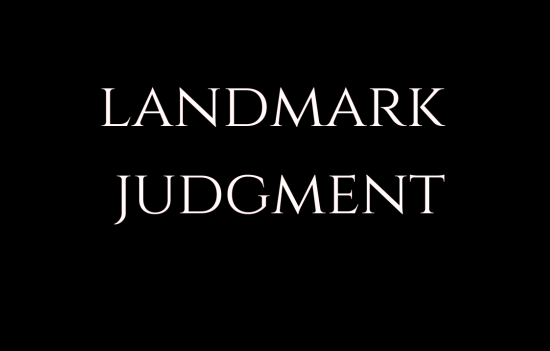CASE BRIEF
CIVIL APPEAL NO. 9017 OF 2013
Appellant – Thalappalam Ser. Coop. Bank Ltd. & Ors.
Respondents- State of Kerala & Ors.
Bench – K.S. Radhakrishnan, A.K. Sikri.
Decided On: 07/10/2013
Statues Referred-
- The Constitution of India- Article 12.
- Right to Information Act, 2005- Section 2(h).
Case Referred-
- S.S. Rana vs Registrar, Co-Operative Societies & Anr (2006) 11 SCC 634..
Facts –
- In May 2007, the information was requested under the Right to Information act 2005 relating to the bank accounts of members of Mulloor Rural Co-operative Society Ltd.
- The Society refused to grant access to the information due to its confidential nature. However, the State’s Information Officer concluded that the non-exposure disregarded required arrangements of the RTI Act.
- The Co-operative Society filed a writ petition in Kerala High Court challenging the order of the State Information Officer.
- The Kerala High Court held that all co-operative societies registered under Societies Act were public authorities and therefore bound to act in congruence with the RTI Act.
- As a result, the Appellant filed an appeal before the Supreme Court of India.
Issue;
- Whether a co-operative society falls within the definition of “public authority” under section 2(h) of the RTI Act and bound to provide information requested by a citizen?
Contentions by Parties-
Petitioner’s Arguments
- That the societies are autonomous bodies and just in light of the fact the officers functioning under the Societies act have got supervisory control over the societies will not make the societies public authorities within the meaning of Section 2(h) of the RTI Act.
- That these societies are not owned, controlled or substantially financed, directly or indirectly, by the State Government.
- That the societies are not statutory bodies and are not performing any public functions and will not come within the expression “state” within the meaning under Article 12 of the Constitution of India.
Respondent’s Arguments
- That the provisions of Societies Act would indicate that the Registrar has got all pervading control over the societies, including audit, enquiry and inspection and the power to initiate surcharge proceedings.
- That though societies are body corporates, they are under the statutory control of the Registrar of Co-operative Societies.
- That in such a situation they fall under the definition of “pubic authority” within the meaning of Section 2(h) of the RTI Act.
Judgment
The Apex Court Bench comprising K.S. Radhakrishnan, A.K. Sikri. held that that a co-operative society registered under the Kerala Co-operative Societies Act was not bound by the Right to Information (RTI) Act, 2005 and that the Co-operative Society did not fall within the definition of sectioion 2(h) “public authority” under the RTI Act.
Conclusion
It can be perceived from this case that if information is personal and does not relate to any public activity or interest, the public authority is not obliged to comply with the request.

